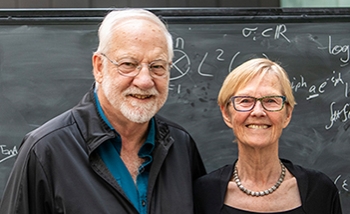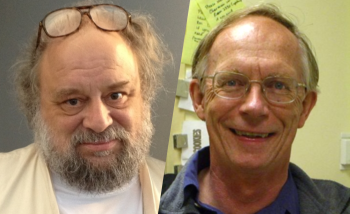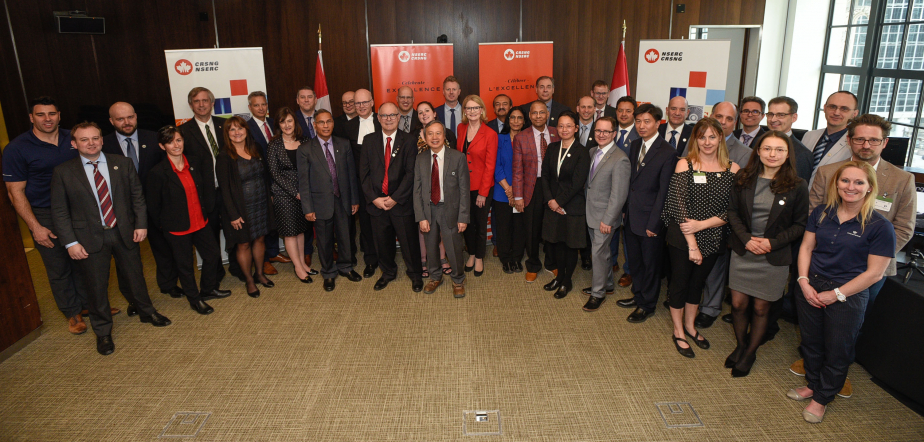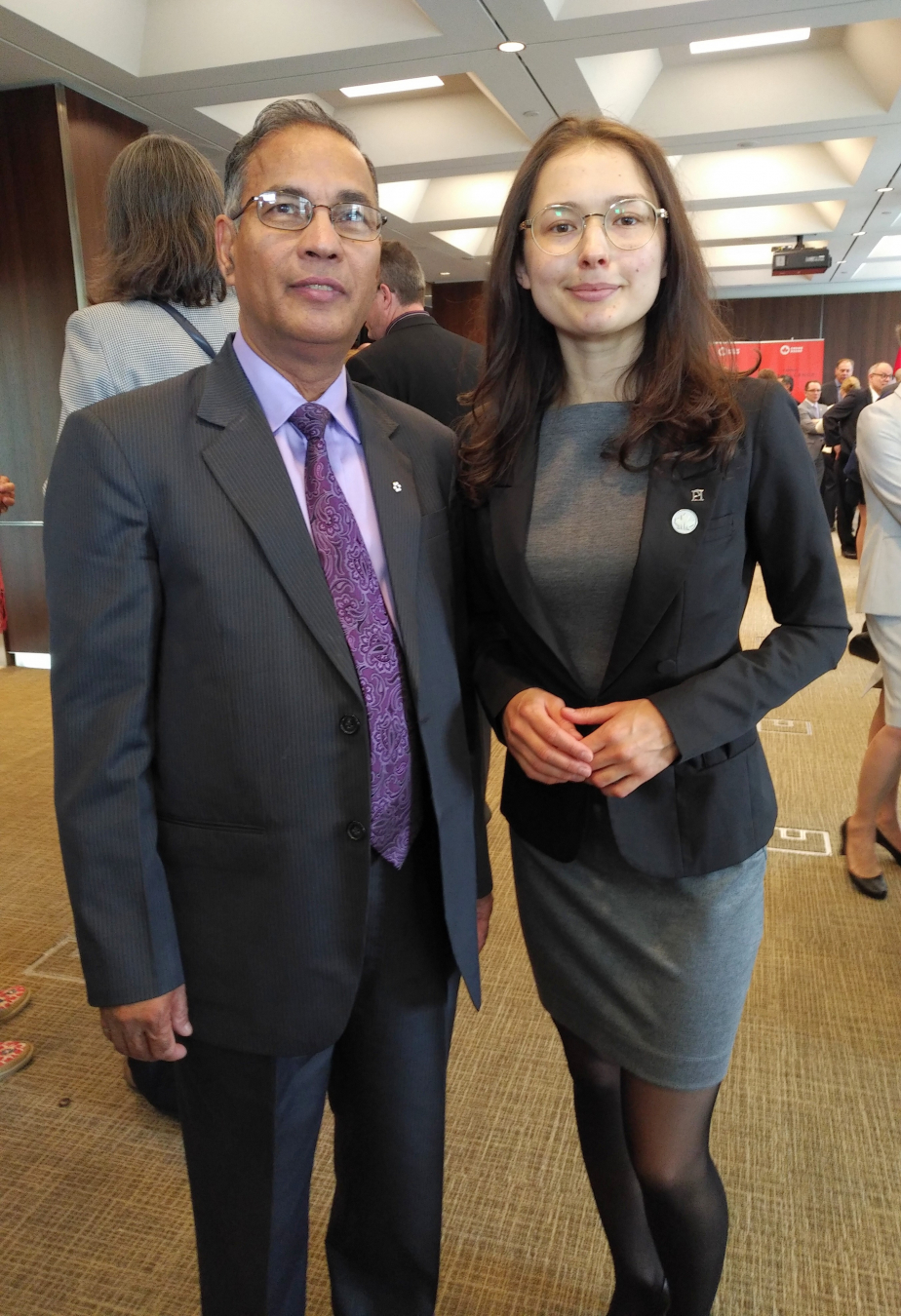Perimeter PhD student Anna Golubeva, a recent recipient of a prestigious Vanier Canada Graduate Scholarship, has just won this year’s NSERC Gilles Brassard Doctoral Prize for Interdisciplinary Research. Golubeva works with Perimeter Associate Faculty member Roger Melko on applying machine learning methods to problems in complex quantum many-body systems.
Golubeva first came to Perimeter from Germany in 2016 to take part in Perimeter Scholars International (PSI), the Institute’s one-year master’s program. During the program, Golubeva approached Melko expressing an interest in computer simulation techniques for condensed matter systems. That led to a collaboration between the two for her PSI essay research project.
Impressed with the quality of Golubeva’s work, Melko offered her a position as a PhD student in his research group at University of Waterloo and at the Perimeter Institute Quantum Intelligence Lab. She accepted, choosing Melko’s group over several other academic offers and industry positions.
“PSI brought me to Canada. My current supervisor, Roger Melko, and Perimeter Institute made me choose to stay in Canada for my PhD,” she says. “Canada excels in embracing diversity, both in science and in general.”
The NSERC Gilles Brassard Doctoral Prize for Interdisciplinary Research, established in 2012 by Gilles Brassard (winner of the 2009 Gerhard Herzberg Canada Gold Medal for Science and Engineering), is awarded annually to an outstanding recipient of an NSERC Vanier Canada Graduate Scholarship who best exemplifies interdisciplinary research.
“Anna was well aware of the current revolution that machine learning is precipitating in the world of information technology, and she and I began discussing early on the prospects for using machine learning in my own line of physics research. Such a perspective and outlook is rare among students of her age,” Melko says.
Golubeva got her start studying biophysics during her undergraduate degree, where she built a base of knowledge spanning physics, biology, chemistry, and even some medicine.
At Perimeter, she set her sights on theoretical physics. Still, she says, “I remained true to my belief in interdisciplinary science. Nature is not split into subfields of biology, physics, mathematics – it’s all one. Our understanding of nature can be advanced when we step over the boundaries between these academic fields.”
Her current research is a true blend of these subfields.
“Machine learning is a tool from the field of artificial intelligence, which has its roots somewhere between neuroscience and computer science, but is now rapidly spreading through all possible branches of science and industry,” Golubeva explains. “Adapting machine learning as a tool for theoretical physics was a novelty a few years ago – now, it’s a whole new field of theoretical physics, which has a strong representation at Perimeter through Perimeter Institute Quantum Intelligence Lab.”
Receiving the prize, Golubeva says, adds tangible, meaningful support at a critical early career stage. “It’s a confirmation that strengthens my belief and enhances my motivation to carry on my work.”
“Anna is one of a very few bold young researchers charting the boundaries between artificial intelligence and fundamental theoretical physics,” says Melko. “I am delighted to see the Gilles Brassard Prize go to such a deserving student and am personally thrilled to have a front-row seat to the exciting developments coming out of Anna’s new interdisciplinary field of research.”
About PI
Perimeter Institute is the world’s largest research hub devoted to theoretical physics. The independent Institute was founded in 1999 to foster breakthroughs in the fundamental understanding of our universe, from the smallest particles to the entire cosmos. Research at Perimeter is motivated by the understanding that fundamental science advances human knowledge and catalyzes innovation, and that today’s theoretical physics is tomorrow’s technology. Located in the Region of Waterloo, the not-for-profit Institute is a unique public-private endeavour, including the Governments of Ontario and Canada, that enables cutting-edge research, trains the next generation of scientific pioneers, and shares the power of physics through award-winning educational outreach and public engagement.
You might be interested in






